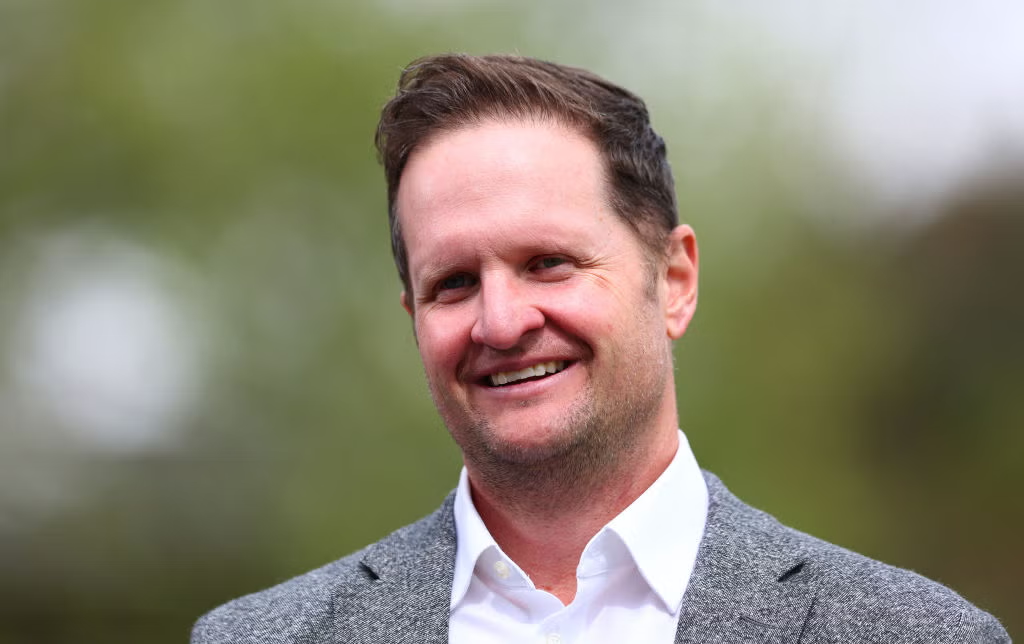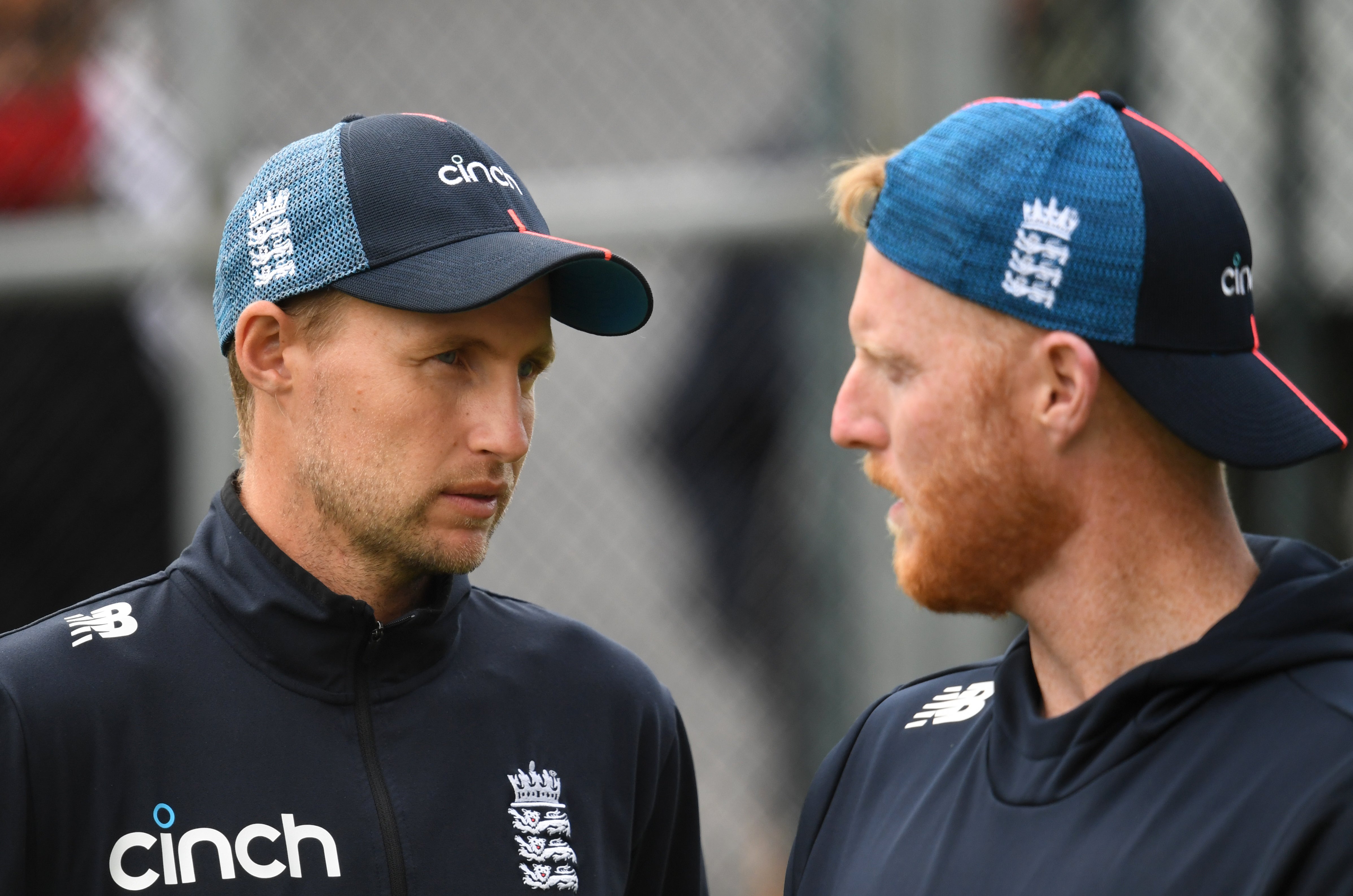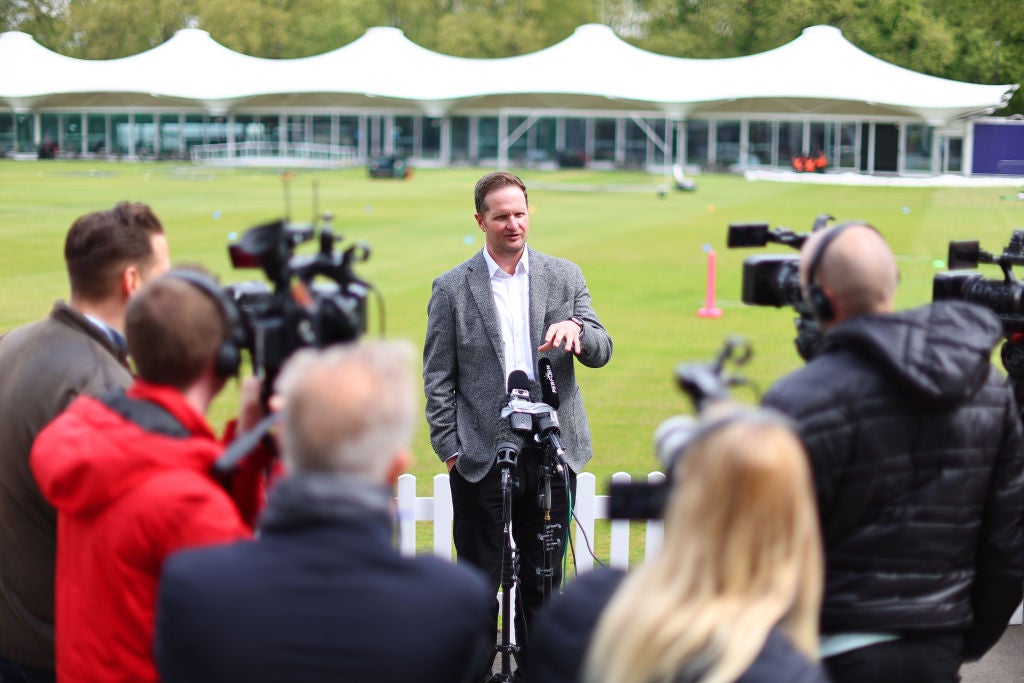
“Nasser, Atherton, myself - we’d sit around saying they should do this, they should do that. We’re all sort of stubborn and think we’re right. When the chance sort of came, I thought, now, actually I have some skin in the game. We always used to say on there (Sky Sports), we want to find solutions not just backtrade and say that’s rubbish, that’s rubbish, that’s good. Come on then, what’s the solution to these things? Now I’ve got that chance to see.”
This was Rob Key’s response when asked why he wanted to be the ECB’s managing director of men’s cricket. His reasons for risking “a good life” as a commentator earning a strong reputation beyond these shores for a tougher one with great responsibility and greater hassle, essentially stemming from conversation with his mates. That after a series of time-killing hypotheticals, after consistently being goaded by Nasser to “tell us what you’d do then, Keysy”, he figured he should take the opportunity to show us.
It’s an appointment that stems from a different kind of bonhomie. This isn’t so much “jobs for the boys” but certainly a job for a boy. Key’s status in English cricket has been enhanced by a position in the media, his credentials for the job based around contacts within the game as an ex-player. And it’s quite fitting his decision-making bears a similarity to a group of mates in the pub telling one of their own “you’re funny - you could do stand-up”. As with that situation, this could go either way: Key’s as likely to succeed as he is to bomb.
Prior to travelling to Pakistan to commentate on their home series against Australia, Key was approached by interim chief executive Andrew Strauss about taking up this position. He said he was interested, then spent the weeks on that tour speaking to various colleagues about the role. Those he consulted say it was as much for their views as it was for Key to hear himself say a few things aloud. By the end of that trip, he had made up his mind.
His first decision of note has been to appoint Ben Stokes as Test captain. He is in the process of appointing two new coaches for the red and white ball codes, with a chief selector either before or after. The first Test of the summer, against New Zealand on 2 June, is nominally a deadline but not one he will rush to adhere to. He admits the need to “meet people and try and find out how it all works”.
Amid the uncertainty of the machinations and the potential blowback of going into the start of the Test summer with key roles yet to be filled, he didn’t mind. “If you need someone to point the gun at you can point it at me it doesn’t really bother me. But we’ll come up with the best team that we possibly can to win the test match and hopefully not make bad decisions.”
He knows it won’t be a real gun. He knows the matters he is addressing are serious but the least serious of the serious matters. For now, that “everyman” grasp of reality that will hold him in good stead, and a quality he has already indulged to iron out many of the creases that had formed well before he came into office last week.
His approach to Stokes, a man he envies as a player and feels “epitomises everything our red-ball team needs” was well-thought out, even if there was only one standout candidate for the job. He spoke to Stokes over the phone and, having established he was “keen” went up to meet him to discuss captaincy further. In the meantime, Key spoke to people close to the 30-year old to paint a clearer, unbiased picture of who he would be working with. “They were very honest about the best way to manage him,” Key revealed amid various nuggets of praise. “When you do that sort of thing, if they’re keen, they’re going to tell you want to hear”.

Around the same time, he text Joe Root to suggest a chat at some stage, adding “but I understand completely if you just want a break from it all and don’t want to”. Root, who had stepped down as captain two days prior to Key’s appointment, called him a minute later.
“We went on for about an hour and a half and we were talking about all the things we want to do with English cricket and move it forward.”
It was, essentially, an empathetic fact-finding mission on a team that has been underperforming over the last two years and a man who had risen above it all, including the challenges of the Covid-19 pandemic, to be a leader and an incredible purple patch. “Now you’re starting to find out a bit more, what he has done has been unbelievable,” said Key on the conclusions garnered.
“What he has done as a leader, but also having to keep going and I’m talking more about the ability to score the runs he scored, it’s one of the great sporting achievements really. He is still now asking ‘how can I help Ben Stokes?’ This is what I think we need to do”. I met him again in London the other day and we spoke for another couple of hours and spoke about all kinds of stuff. This is their team really – this is the best time of your life as player and then you get to my age and you do other things but nothing is as much fun as being player. They have to make the most of it and Joe Root is so important to English cricket in that regard and he’ll have a massive hand to play.”
The “they” Key speaks of includes James Anderson and Stuart Broad. Having been dropped for the West Indies tour, both are due back for the first Test. Both were spoken to on Easter Sunday and given a promise by Key that, whoever comes in to coach, “for my money, you guys are available for selection for that first Test match”.

It was a bold statement to make, especially as he was yet to consult Stokes about Broad and Anderson. Thankfully, Stokes brought it up first, saying he wants to the best team available to him, which includes the pair with over 1,100 Test wickets between them. Key has met both veterans which will obviously count for something for two players who were irked by how short the conversations were when they were informed they would not be going to the Caribbean.
Such sensitivity and personability is both a rare commodity in the cut and thrust of professional sport and yet the very least you’d expect from Key. The current generation of England player has long had Key’s ear and as such, one imagines he has indulged as many calls received as made so far.
The difficulty will be when he has to deliver bad news. The modern group are one who, for the most part, get things their own way. Prizefighters who have more autonomy on when and where they step into the ring. The unravelling under Ashley Giles was arguably a result of not wanting to say no. That must change and will ultimately change Key’s relationship with those under his watch.
He promises this will be the case. That the stance he assumes over a range of matters, from availability for the Indian Premier League to matters around touring and rest and rotation, will be with a view for what is good for the team and what is right for English cricket. “It might be naïve to say this, but that is the basis of every decision you make.”
It might be, yes. But as long as Key can maintain his personal skills and stave off the desire to indulge in management talk and walk, he will do right by English cricket, and also himself.







